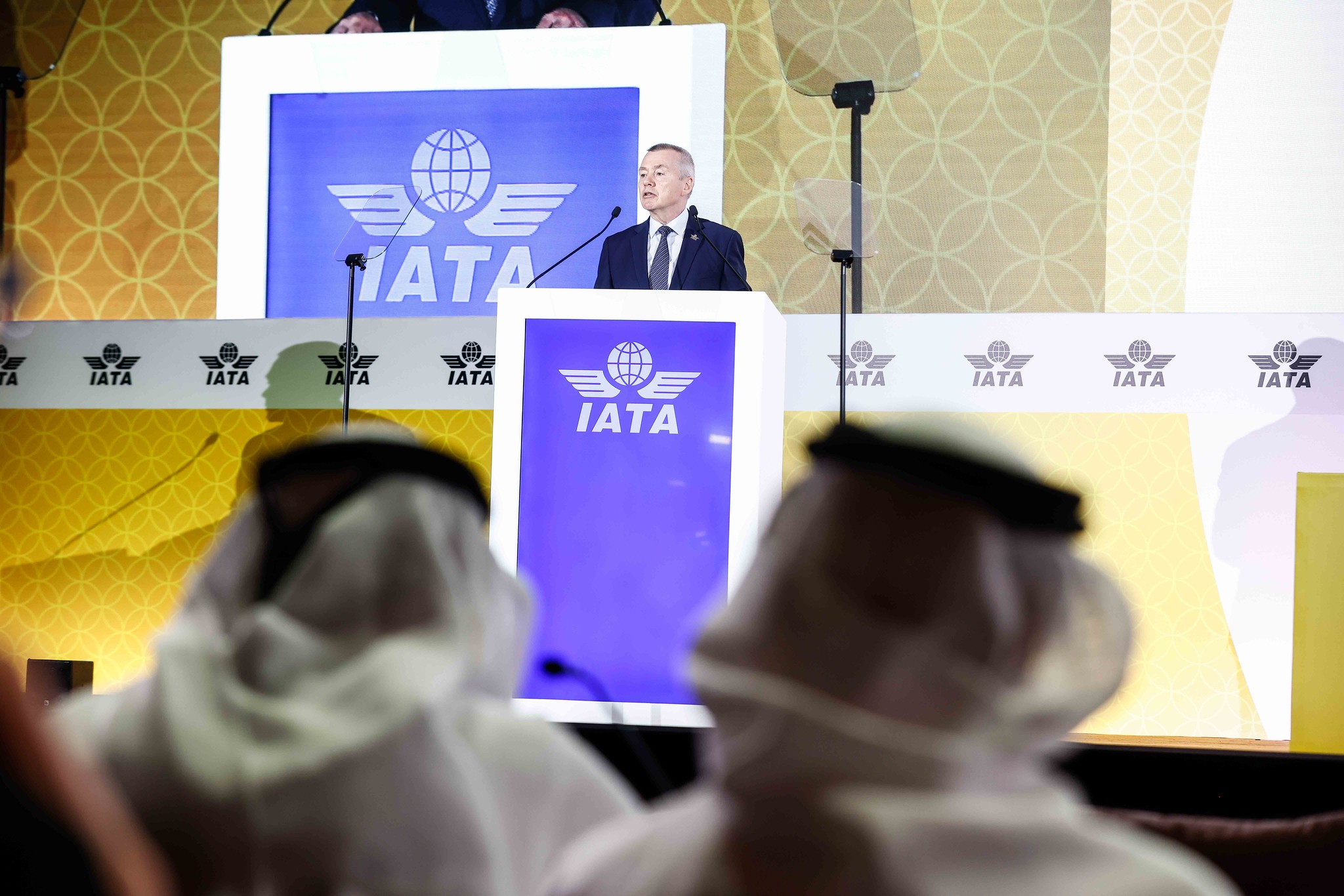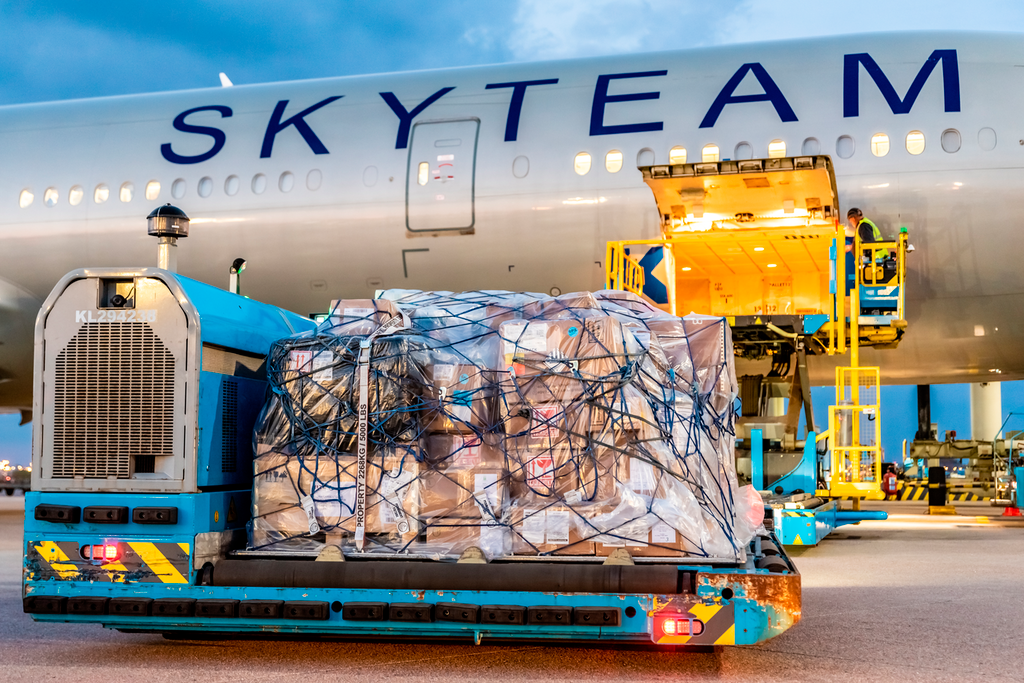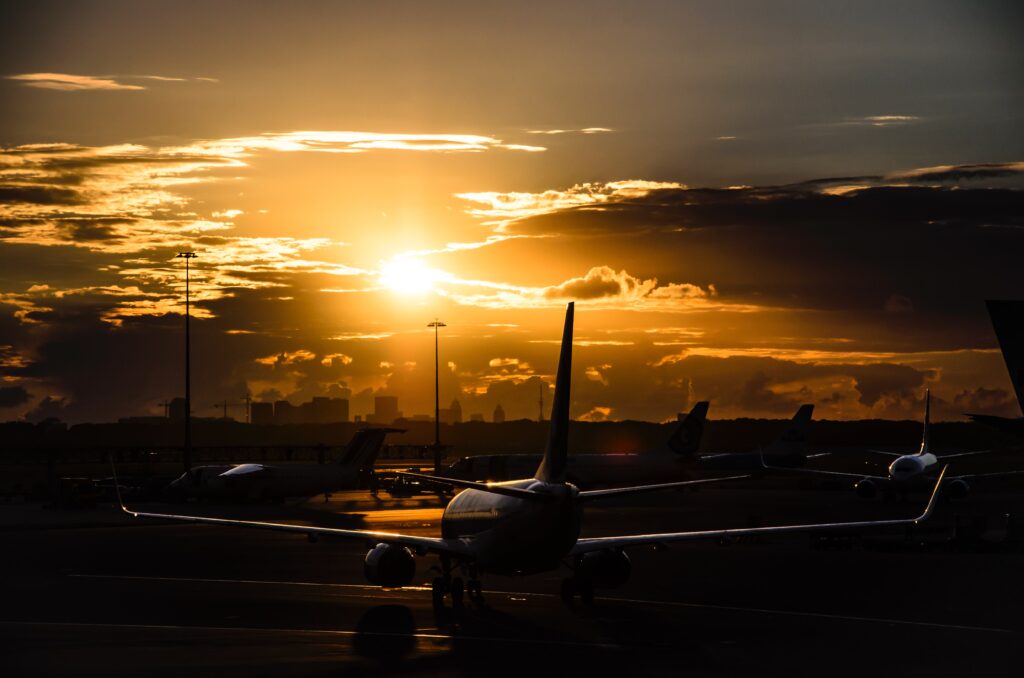IATA Forecasts Record Revenue for Airlines in 2024 at Dubai Summit
The global airline industry's net profits are set to rise to $30.5 billion in 2024, up from an estimated $27.4 billion in 2023.
June 3, 2024

Photo: Willie Walsh, Director General. Courtesy of IATA
The international airline industry is abuzz as leaders from around the globe converge on Dubai, United Arab Emirates, for the 80th International Air Transport Association (IATA) Annual General Meeting (AGM) and World Air Transport Summit.
This prestigious event is a landmark occasion, marking the first time the UAE has hosted the AGM. Emirates, the host airline, is welcoming over 1,700 participants, including industry leaders, government officials, and media representatives, underscoring Dubai’s pivotal role in global aviation.

Photo: Courtesy of IATA
IATA, representing 330 airlines that account for over 80 percent of global air traffic, has projected a promising year ahead for the industry in 2024. However, while revenues and passenger numbers are expected to hit record highs, the sector faces enduring challenges that could impact profitability.
Financial Outlook: Profitability on the Rise
According to IATA, the global airline industry’s net profits are set to rise to $30.5 billion in 2024, up from an estimated $27.4 billion in 2023. This translates to a net profit margin of 3.1 percent, slightly higher than the 3.0 percent margin of the previous year.
However, despite this positive trajectory, the return on invested capital is projected to be 5.7 percent, which still falls short of the average cost of capital, exceeding 9 percent.

Photo: Willie Walsh, Director General. Courtesy of IATA
Willie Walsh, IATA’s Director General, noted the achievement with caution, “The expected aggregate net profit of $30.5 billion in 2024 is a great achievement considering the recent deep pandemic losses. However, a 5.7 percent return on invested capital is well below the cost of capital. Earning just $6.14 per passenger barely covers a cup of coffee in many parts of the world.”
Revenue and Expenses: A Delicate Balance
The industry is on track to achieve historic revenue levels, with total revenues projected to reach $996 billion, a 9.7 percent increase from 2023. Passenger revenues alone are expected to surge to $744 billion, up 15.2 percent from $646 billion in 2023, driven by an anticipated 11.6 percent growth in revenue passenger kilometers (RPKs).

Photo: London Heathrow. Courtesy of Elizabeth Leyden/Alamy Stock Photo
However, this revenue surge is balanced by a rise in expenses, forecasted to reach a record $936 billion, up 9.4 percent from the previous year. Fuel costs remain a significant burden, with the average price per barrel of jet fuel expected to be $113.8, contributing to a total fuel bill of $291 billion.
Passenger and Cargo Dynamics
A record 4.96 billion travelers are expected to take to the skies in 2024, reflecting the strong demand for air travel.
This demand is anticipated to result in an average passenger load factor of 82.5 percent, aligning closely with pre-pandemic levels.

Photo: Courtesy of SkyTeam
Despite robust passenger demand, cargo revenues are projected to decline to $120 billion from $138 billion in 2023. This decline is part of a market normalization following the extraordinary highs seen during the pandemic.
Regional Insights
North America is expected to continue its strong performance, contributing significantly to industry profits. The region is forecasted to achieve a net profit of $14.8 billion in 2024, with a 4.5 percent profit margin, translating to $13.10 per passenger.
Europe presents a mixed outlook. While demand is projected to grow by 11.1 percent, supply chain issues, high interest rates, and potential labor disputes could hinder profitability. The region is projected to see a net profit of $9 billion in 2024, with a 3.8 percent profit margin.

Photo: Amsterdam Schiphol. Courtesy of Ramon Kagie / Unsplash
Asia-Pacific is poised for significant growth, driven by recovering domestic markets in China, Japan, and Australia. The region is forecast to generate $2.2 billion in net profits, a substantial increase from $0.6 billion in 2023. However, international travel, particularly in China, remains below pre-pandemic levels.
Latin America and Africa continue to show improvement despite economic and operational challenges. Latin America is expected to achieve $0.6 billion in net profits, supported by strong sales growth in Mexico and Central America. Africa is projected to maintain profitability with a net profit of $0.1 billion, despite high operational costs and connectivity issues.
Middle East carriers are benefiting from the region’s economic strength and investments in infrastructure and tourism. The region is forecast to generate $3.8 billion in net profits, with demand expected to grow by 9.3 percent.
Challenges and Risks Ahead
The industry’s profitability remains vulnerable to global factors. Economic developments, especially in China, are critical to monitor, given the country’s slowing growth and high youth unemployment.
Geopolitical risks, such as the ongoing Russia-Ukraine conflict and tensions in the Middle East, also pose significant threats. Supply chain disruptions continue to impact fleet expansion and renewal, with a notable reduction in expected aircraft deliveries for 2024. Regulatory pressures and rising compliance costs could further strain profitability.

Photo: Willie Walsh, Director General. Courtesy of IATA
Walsh emphasized the need for supportive public policies, stating, “Resolving supply chain issues and reducing regulatory burdens would help improve profitability. Public policy measures that drive business competitiveness are a win for the economy, jobs, and connectivity. It would also place us in a strong position to accelerate investments in sustainability.”
The Traveler’s Perspective
Travelers remain enthusiastic about air travel, with 77 percent agreeing that it offers good value for money. According to IATA’s April 2024 polling data, 97 percent of travelers expressed satisfaction with their journeys, and a majority believe air travel is essential for the economy and modern life.

Photo: Courtesy of Zurich Airport
The affordability of air travel continues to improve, with the average return airfare in 2024 expected to be $252, significantly lower than the $306 seen in 2019. This trend of increasing affordability is expected to persist, driven by shorter journey distances and ongoing market recovery.
Travelers also support the industry’s sustainability goals, with 82 percent believing that achieving net zero carbon emissions by 2050 is the right objective. This confidence in the industry’s commitment to sustainability underscores the importance of continued investments in greener technologies and practices.
Blocked Funds: Progress and Challenges
IATA reported a 28 percent decrease in airline funds blocked from repatriation by governments, with the total blocked funds at the end of April standing at approximately $1.8 billion. This reduction, amounting to $708 million since December 2023, is a positive development, but significant challenges remain.
“The reduction in blocked funds is a positive development. The remaining $1.8 billion, however, is significant and must be urgently addressed,” said Walsh.
“The efficient repatriation of airline revenues is guaranteed in bilateral agreements. Even more importantly, it is a prerequisite for airlines—who operate on thin margins—to be able to provide economically critical connectivity. No business can operate long-term without access to rightfully earned revenues,” added Walsh.
At its peak in June 2023, Nigeria’s blocked funds amounted to $850 million, severely impacting airline operations and finances. However, as of April 2024, 98 percent of these funds have been cleared. Despite this progress, eight countries still account for 87 percent of the total blocked funds, amounting to $1.6 billion. Pakistan and Bangladesh are particularly problematic, with airlines unable to repatriate $731 million in revenues earned in these markets.
“Pakistan and Bangladesh must release the $731 million in blocked funds immediately to ensure airlines can continue providing essential air connectivity,” stressed Walsh. “In Bangladesh, the solution is in the hands of the Central Bank, which must prioritize aviation’s access to foreign exchange in line with international treaty obligations. The solution in Pakistan is finding efficient alternatives to the system of audit and tax exemption certificates, which cause long processing delays.”

Photo: Courtesy of Zurich Airport
As the global airline industry gathers in Dubai for the 80th IATA Annual General Meeting and World Air Transport Summit, it stands at a pivotal moment. With projections indicating record revenues and passenger numbers in 2024, the industry is poised for growth. However, managing rising costs, geopolitical risks, and regulatory pressures will be crucial.
The resilience and adaptability of airlines, along with supportive public policies, will determine the industry’s ability to navigate these challenges and capitalize on opportunities. Next year, the IATA AGM will be held in Delhi, India, hosted by IndiGo, the country’s largest airline and one of the world’s fastest-growing carriers.




